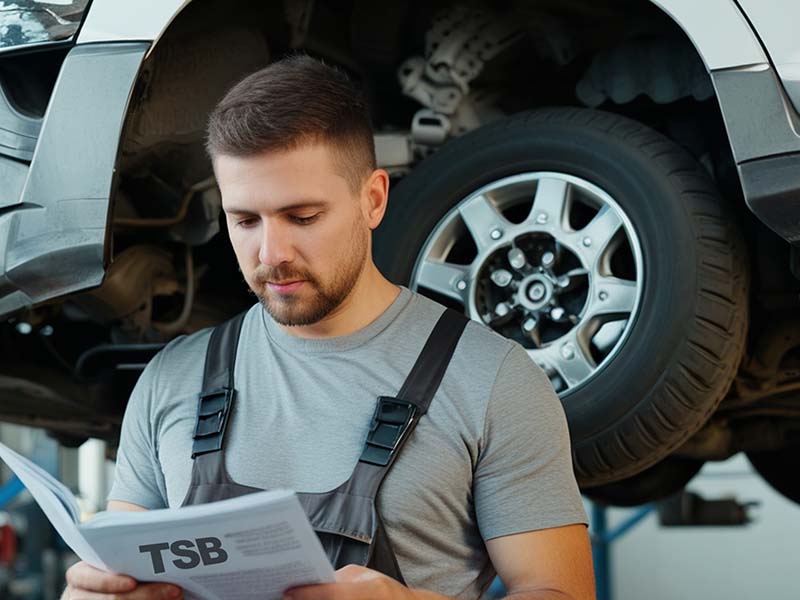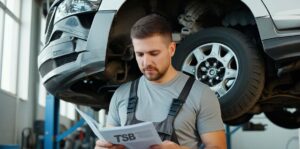If your vehicle has an open recall, you should read this article before taking it to the dealership. How you report the problem can make or break a potential Lemon Law claim.
Many California consumers are confused about the difference between a recall and a TSB (Technical Service Bulletin). Understanding the difference is critical if your car, truck, or RV is having recurring issues and you’re considering a California Lemon Law claim.
What is a Recall?
Example: The 2022–2023 Toyota Tundra engine recall required Toyota to notify owners and replace defective engines that could fail due to machining debris.
What is a Technical Service Bulletin (TSB)?

Your Right to See a TSB
Many consumers don’t realize they have the right to see Technical Service Bulletins related to their vehicle. TSBs are made publicly available through the NHTSA website, and you can search for them by VIN or by entering your vehicle’s make, model, and year. You don’t need to rely solely on your dealership to disclose them.
This is important because:
- A TSB proves the manufacturer knows about the defect.
- Dealers may not always volunteer TSB information, especially if your vehicle is out of warranty.
- Reviewing TSBs helps you stay informed and avoid unnecessary repair costs.
Why the Difference Matters in Lemon Law Claims
How to Report a Recall Defect for California Lemon Law Purposes
Under California law, a recall repair is considered prophylactic (as explained in the American Suzuki case). That means it is a preventive measure, not necessarily proof that your specific vehicle experienced the defect.
If you receive a recall notice, here’s what to do:
Consumer Tip Box: How to Talk to the Dealer
- Describe symptoms in detail (e.g., “engine stalls at highway speeds”) rather than saying “I got a recall notice.”
- Ask the service advisor to write your complaint in your words on the repair order.
- Request a copy of the repair order every time you bring the vehicle in.
- Keep a personal log of dates, mileage, and issues experienced.
This approach ensures your paperwork documents actual problems, not just a recall campaign, and protects your lemon law rights.
How a TSB Can Help Your Lemon Law Case
Which Vehicles Are Most Prone to Recalls?
Recent data shows that some makes and models are far more likely to be recalled than others:
What California Consumers Should Do
- Check your VIN on the NHTSA website for recalls and TSBs.
- Ask your dealer if any TSBs apply to your vehicle.
- Keep all repair orders that reference TSBs.
- Consult a California Lemon Law attorney if repeated repairs fail to resolve the problem.
California recently passed AB 1755, a law that shortens the deadline for filing a Lemon Law claim. Consumers must now file WITHIN ONE YEAR OF THE WARRANTY’S EXPIRATION DATE, making timing critical. Delaying could cost you your rights.
TAKE ACTION NOW: Get a FREE Consultation Today
Understanding the difference between a recall and a TSB empowers California consumers to better protect their rights. If your vehicle has recurring issues tied to a TSB or recall, you may qualify for relief under the California Lemon Law. Always check for recalls and TSBs, document your repairs, and seek legal guidance when necessary. For more information and to see if you may have a claim, contact the RV Auto Legal Team.


 Risky And Common Chassis Issues In Motorhomes Weaken Reliability
Risky And Common Chassis Issues In Motorhomes Weaken Reliability